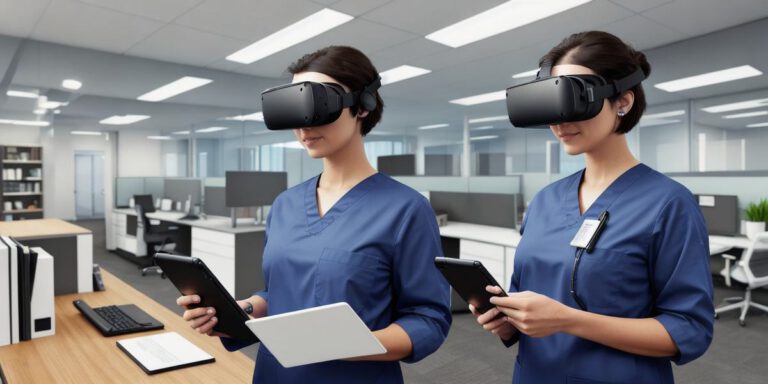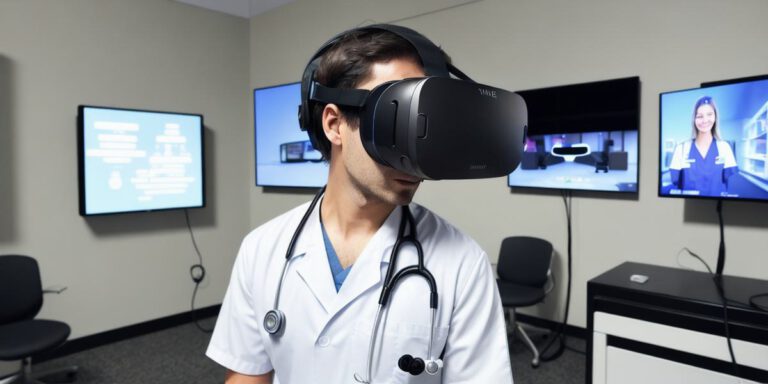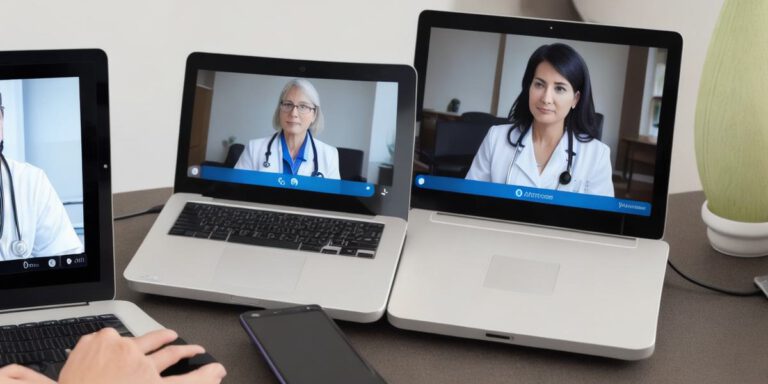The Future of Virtual Healthcare: How AR Applications are Changing Remote Consultations

Augmented Reality (AR) technology has been transforming various industries, including healthcare. With the COVID-19 pandemic forcing many people to seek remote healthcare consultations, AR applications have become increasingly important in enhancing the patient experience and improving health outcomes.
One of the main advantages of AR applications is their ability to provide interactive visualizations that can help doctors diagnose and treat patients more accurately and efficiently. For example, AR applications can overlay medical images onto a patient’s body, allowing doctors to visualize the patient’s anatomy in real-time. This can be particularly useful for surgeries or procedures where precision is critical.
Another benefit of AR applications is that they can help patients better understand their health conditions and treatment options. By providing interactive visualizations and educational materials, patients can gain a deeper understanding of their condition and how it affects their body. This can lead to more informed decisions about their healthcare and better adherence to treatment plans.
AR applications can also enhance the patient experience by reducing wait times and increasing accessibility. With virtual consultations, patients can receive medical advice and treatment from anywhere in the world, without having to physically visit a healthcare facility. This can be particularly beneficial for patients who live in remote areas or have mobility issues.
Research has shown that AR applications in healthcare can lead to improved outcomes and reduced costs. For example, a study published in the Journal of Medical Internet Research found that AR-guided surgery led to a 50% reduction in surgical time and a 30% reduction in blood loss compared to traditional surgeries.
While AR applications are still in their early stages, they have the potential to revolutionize healthcare and improve patient outcomes. By leveraging the power of AR technology, doctors can provide more accurate diagnoses, improve treatment plans, and enhance the overall patient experience. As the COVID-19 pandemic continues to change the way we access healthcare, AR applications will become an increasingly important tool for remote consultations and improving virtual healthcare experiences.
FAQs:
Q: What is Augmented Reality (AR) technology?
A: Augmented Reality is a technology that overlays digital information onto the real world, enhancing our perception of reality.
Q: How can AR applications be used in healthcare?
A: AR applications can provide interactive visualizations, improve diagnosis and treatment accuracy, and enhance patient understanding of health conditions and treatment options.
Q: What are some benefits of using AR applications in healthcare?
A: Some benefits include improved accuracy in diagnosis and treatment, reduced wait times and increased accessibility, and enhanced patient experience.
Q: Is there any research on the effectiveness of AR applications in healthcare?
A: Yes, research has shown that AR-guided surgery can lead to improved outcomes and reduced costs compared to traditional surgeries.








